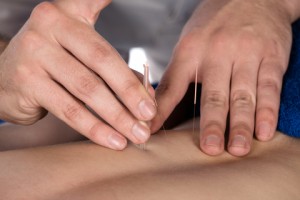
Acupuncture has recently received a lot of attention as an excellent alternative to prescription painkillers, especially with the Veteran Administration’s successful use of Chinese medicine to combat dependence on opioid drugs. Is acupuncture right for you? Even though preventative and holistic therapies are becoming more mainstream, people still have a lot of questions about these modalities.
If you’re thinking about receiving acupuncture treatments, keep in mind it’s important to separate fact from fiction. Here are some common myths and myth-busters surrounding Traditional Chinese Medicine.
1) Acupuncture is solely for pain relief. Scientific studies back up the effectiveness of acupuncture for the relief of both acute and chronic pain. But acupuncture — plus the related modality of Chinese herbalism — works on a broad array of conditions ranging from insomnia and digestive issues to fertility. In ancient Chinese, people sought out acupuncturists for regular maintenance sessions. Maintaining your health with acupuncture can have such positive side effects as better sleep, brighter moods and more energy.
2) Acupuncture is painful. Acupuncture needles are typically 15 times smaller than the hypodermic needles used by physicians. These “filiform”needles are solid rather than hollow as they’re not used to inject substances into the body. So it’s actually impossible to compare the experience of acupuncture with receiving an injection. Many people don’t even feel the needle insertion. In fact, most people fall asleep during an acupuncture treatment. Post-acupuncture, people feel relaxed and rejuvenated.
3) If you don’t feel better after one treatment, acupuncture is the wrong choice. People frequently seek out acupuncture for long-term, chronic conditions. The longer you’ve had a health issue, the longer it can take for your body to recover. Acute pain often takes a series of treatments to resolve the root problem. It’s not unusual for licensed acupuncturists to employ several different techniques or treatment styles. One patient may respond very well to technique A and not as well to technique B. Keep an eye on your body’s response and give your practitioner honest feedback so they can employ the best approach for you.